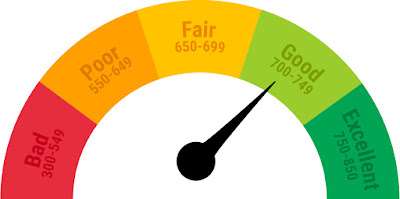The important aspect to look at is how the COVID-19 pandemic could impact your repayment ability and your credit score.
Applied for loan moratorium? Inform credit bureaus
Every time you miss an equated monthly installment (EMI) or a credit card payment or even if you pay the minimum balance, your credit score gets impacted adversely. But if you’ve opted for a loan moratorium, ideally, your credit score should not get affected. But check for errors here.When you apply for a loan moratorium, your bank reports it to the credit bureau. That doesn’t mean you can relax. “If you opt for a loan moratorium, it’s your responsibility to apply for a credit report and verify whether credit scores are intact or impacted,” says Sathya Kalyanasundaram, Country Head and Managing Director, Experian India. There may be errors in the data received by credit bureaus from banks. In such a situation, you need to rectify any inaccuracy in the credit report by taking it up with your bank.
Another Reading: How To Use Credit Cards Wisely?
What happens if you have two loans running with your lender and you’ve opted for a moratorium on only one? Check if your bank has enrolled you for the correct loan. Any mistake here can impact your credit score.
Says Kalyanasundaram, “It’s the responsibility of the consumer to ensure that the loan moratorium is implemented correctly according to guidelines and is in agreement with the bank.”
Says Kalyanasundaram, “It’s the responsibility of the consumer to ensure that the loan moratorium is implemented correctly according to guidelines and is in agreement with the bank.”
Don’t just stop paying EMIs without taking the moratorium
A loan moratorium is not automatically given to you. You have to opt for it. Credit experts say that some borrowers have stopped paying EMIs assuming that the moratorium was automatic. A few others have also moved savings from one bank account to another as the electronic clearing service (ECS) mandate may automatically debit the amount. “In this set-up, loan repayment has failed from the linked bank account and impacted the credit score of the borrowers,” says Parijat Garg, a credit scoring consultant.After a couple of months, your loan account will become a non-performing asset for the lender and it will start reflecting on your credit score, making it difficult for you to take loans elsewhere.
Since the moratorium is extended till August, you can apply even now.
Unpaid credit card bills, multiple past defaults and a bad credit score may make you ineligible for the moratorium. Don’t take anything for granted. If you still wish to apply for a moratorium, check. If the bank refuses, you will need to continue paying your bills.
Beware of digital frauds
Be careful of mobile apps that appear to promise you easy cash. A survey by YouGov and ACI Worldwide reveals that around 31 percent of the 1000-plus respondents have been victims of card or digital payments fraud in April. For 52 percent of the respondents, fake apps and websites were the biggest threats while making digital payments.Kaushik Roy, Vice president and country leader (South Asia) of ACI Worldwide says, “The disruption caused by the COVID-19 pandemic provides another opportunity for fraudsters to dupe unsuspecting consumers.”
“Many of these apps require bank account details, card details and pin to validate users. With this confidential information, fraudsters can access your personal banking details and trick you,” says Kalyanasundaram. As a result, your credit score can be compromised.
Generally, it is not advisable to share any personal confidential details on unregulated websites or apps.
Another Reading: A Detailed Guide of your Credit card billing cycle
Check your credit report at regular intervals and make sure that all the credit lines are reported correctly. In case of any discrepancy in fraudulent activity raise a complaint with your bank immediately and register a first information report (FIR) with the cyber-crime branch of the police.
Do not rely too heavily on credit
Many customers may have multiple credit cards. In this pandemic, they are tempted to use the credit available as they may be cash-strapped due to job-losses or salary cuts. Navin Chandani, MD and CEO, CRIF High Mark says, “In swiping your credit card for regular purchases and not repaying the due amount, you will incur interest charges.”. They will perceive you as being credit hungry. This can have a negative impact on your credit score. Rely on your savings/emergency corpus.Says Chandani, “Also, should not apply for new credit cards, auto and personal loans at the same time at all.” This will be a red flag for creditors.
You need to space out your applications when your financials improve, to limit an impact on your credit score.
By Hiral Thanawala on Moneycontrol



0 Comments